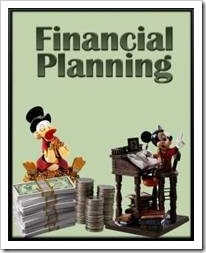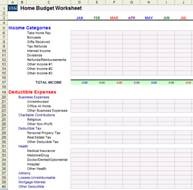 This weekend, we had some friends over for a barbecue with their kids. The place was full of lively conversation, food and games and time went by quickly.
This weekend, we had some friends over for a barbecue with their kids. The place was full of lively conversation, food and games and time went by quickly.
Since the men had not seen one another for a few weeks, we did a round of updates and Wayne told us he was planning to change his line of work and become a financial planner. As soon as he mentioned the words “financial planner”, the rest of us changed facial expressions and posture and it was clear we all had strong feelings about this profession.
This was by no means personal, because we like Wayne a lot, but we had all been visited by a financial planner or two and had all chosen not to use them. From that starting point, we felt Wayne was starting “on the back foot” and was headed into difficult, unpleasant territory.
As we talked, some interesting points emerged, which I would like to share with you, because they can help you become your very own financial planner and stop looking for one, if you are.
Disclaimer: everything in this post related to how things are done in Australia and only represents my personal opinion. I feel it applies generally, but I am not sure, so please seek professional advice before making any changes to your financials. If you blame me later, I will simply point back to this paragraph, so please don’t.
Who do financial planners work for?
 Regrettably, all the financial planners our group knows are essentially sales people for financial institutions – insurance companies, lenders and banks. Their livelihood depends on commissions they receive from these large companies when you sign on the dotted line for one of the financial “products” they sell.
Regrettably, all the financial planners our group knows are essentially sales people for financial institutions – insurance companies, lenders and banks. Their livelihood depends on commissions they receive from these large companies when you sign on the dotted line for one of the financial “products” they sell.
In fact, to become a financial planner, the easiest way is to be trained by one of those financial institutions and learn the profession along with their particular portfolio. It is cheaper and there is a job for you at the other end, so why not?
As a family, this presents a serious problem, because the advice you get is biased and is therefore hard to trust. “Your” financial planner’s best interest may or may not match yours and the range of products he or she presents to you may or may not include the best ones for you and your family.
To limit the effects of this situation, financial planners are required by law to be honest about their fees and share with you what they will gain from your choices. However, this creates an awkward situation, in which any conflicting interests are out in the open and eliminates the possibility of feeling good about your choices, because you can see the planner makes lots of money by doing little work for you.
Who needs a financial planner anyway?
 I told Wayne that if anything, I would prefer a money manager to a financial planner, and the others agreed. To me, a money manager is someone you can trust, who directly manages your money and gives you more money than you would get on your own, wrapped in a blanket of peace of mind. With a money manager, you delegate your financial affairs to someone who can do it better than you.
I told Wayne that if anything, I would prefer a money manager to a financial planner, and the others agreed. To me, a money manager is someone you can trust, who directly manages your money and gives you more money than you would get on your own, wrapped in a blanket of peace of mind. With a money manager, you delegate your financial affairs to someone who can do it better than you.
In return, they get a fee for their services or you can give them some of your own services – carpentry, web development, tutoring, etc.
When you are the one paying, the services you get are aligned with your best interests, so you are likely to get much better results.
To make this even better, you can agree with your money manager that they can get a cut of the extra money generated, which means the more you make, the more they make, and pay a penalty for money lost, which means they lose too. This way, money managers work for you when they work for them and, if they are good, money piles up for everyone.
What would a money manager do for you?
We then talked about the things Wayne could do within his own community, in which there are many immigrants, laborers and traders. Being a nice man and a familiar face, he should easily find people who will trust him, but what can he do for them?
 We imagined him talking to a rather simple client, who was very good at his job, but had no interest in money, budgeting or investment and was happy to let Wayne handle his affairs. We asked Wayne what he would do for that person.
We imagined him talking to a rather simple client, who was very good at his job, but had no interest in money, budgeting or investment and was happy to let Wayne handle his affairs. We asked Wayne what he would do for that person.
“The first thing I would do is find out how much money he makes, what he owns and how he spends his money”, he said.
“OK, then what would you do?” we asked.
“Then, I would identify opportunities for him and his family to make more money, save money and make their extra money grow”, he said, “Most people don’t track their income and expenses, so they can’t make good decisions and just do what everybody else does or what they learned from their parents”.
“So you are saying that people should keep track of their income and expenses?”
“Yes”, he said, “And it’s quite simple, actually, but it requires everyone’s cooperation and detailed records of every financial transaction that happens in the family”.
“How do you do this?”
“Whether you are in business or on a salary, you get paid only a few times per month, so that’s easy to track. Then, when you buy something or pay a bill, you need to collect the receipt and write it under the appropriate category – groceries, health, education, housing, entertainment, travel, utilities, taxes and so on”.
How to be your very own financial planner
 The rest of us realized we were generally doing this and had for some periods of our lives tracked our expenses in detail. “If we can do it, anybody should be able to”, we thought.
The rest of us realized we were generally doing this and had for some periods of our lives tracked our expenses in detail. “If we can do it, anybody should be able to”, we thought.
So we compared notes and found out each of us used some form of a tracking sheet to guide us. On that sheet were various income and expense categories, tax deductions and formulas that allowed us to quickly see the effect of our lifestyle choices and plan our financial steps better.
As life coaches, Ronit and I often give our clients various self-monitoring sheets to help them focus on their areas of greatest need for improvement or find the cause of something that limits them – sleep patterns, coffee and alcohol consumption, water intake, time allocation and even money management.
Within a few weeks, sometimes only 2 weeks, our clients come back with a victorious smile on their face and say, “Aha! Got it! Now I know what to do”.
So here is your chance to get a handle on your family’s finances, if you are not very good at it already, and a handy tool you can share with friends and loved ones who may need it.
 This Free Home Budget Worksheet is for Microsoft Excel. There is no need to register and nothing to pay. Just download, open in Excel and start working. You may need to adapt the sheet to your specific situation and location, so maybe get the kids to help for extra points.
This Free Home Budget Worksheet is for Microsoft Excel. There is no need to register and nothing to pay. Just download, open in Excel and start working. You may need to adapt the sheet to your specific situation and location, so maybe get the kids to help for extra points.
No Excel? No problem. You can also find printable budget worksheets there. Just download, print and use.
Disclosure: the only thing I am getting for sharing this with you is the feeling that I am a nice, helpful person.
Onwards and upwards, parent friends! Let us be prosperous, if only for the sake of our kids.
Rich parenting,
Gal











